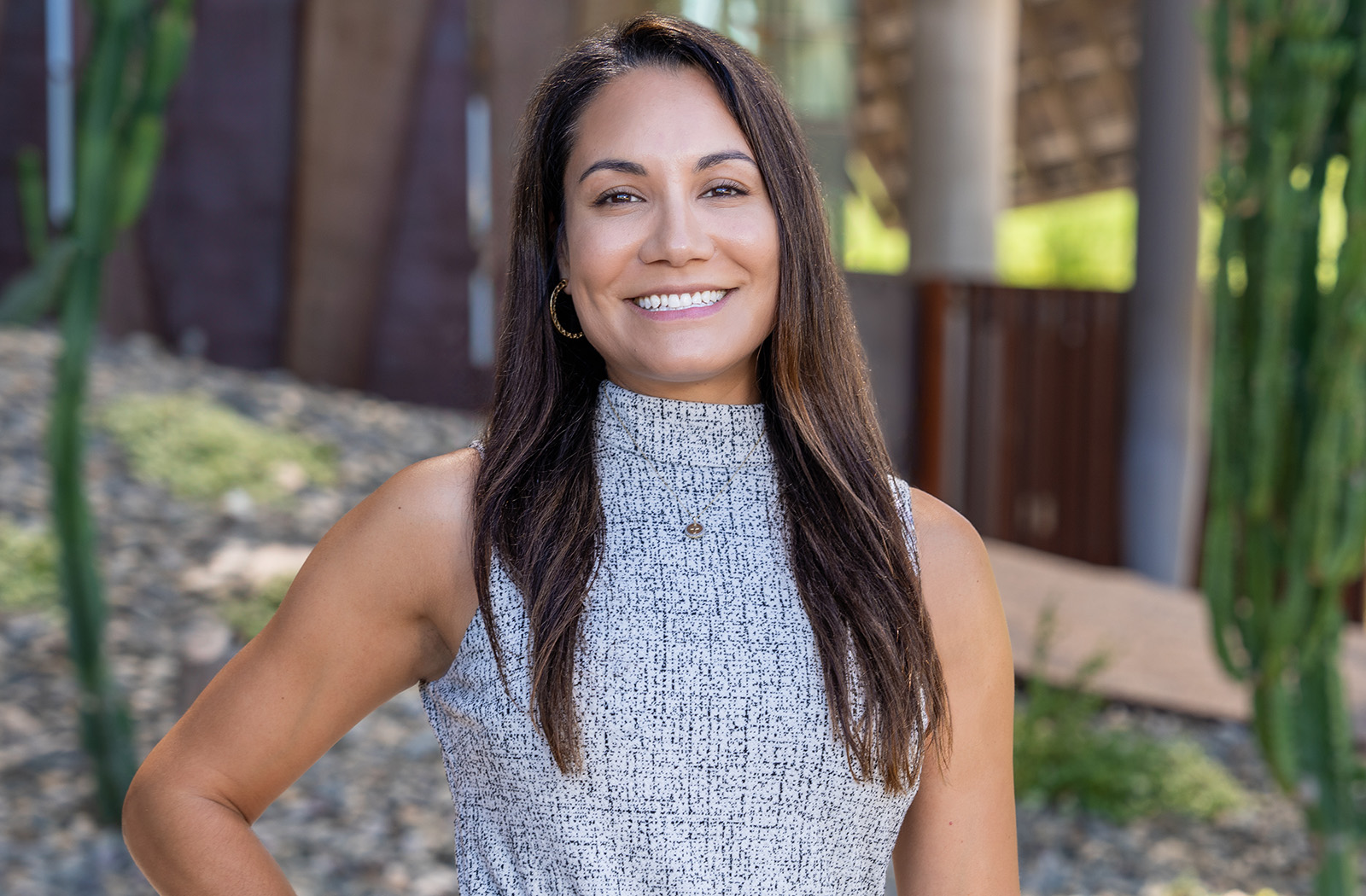
Women to Watch in Medicine and Science - Rachel Mariani, MD

Rachel Mariani, MD, is a skilled physician, who is trained as an anatomic and clinical pathologist with specialty fellowship education in hematopathology and pediatric pathology.
She works at the University of Arizona College of Medicine – Phoenix as an assistant professor for the Departments of Child Health and Pathology and is also clinically affiliated with Phoenix Children’s.
“I chose pathology because I was always fascinated by what was going on behind the scenes in disease states,” Dr. Mariani said. “I get a lot of satisfaction from working as a teammate with other physicians.”
She completed all of her training in Chicago. Dr. Mariani earned her medical degree and did her residency training at the University of Illinois Chicago. She completed two fellowships at Northwestern University.
Dr. Mariani entered medical school believing she would become an internal medicine physician and eventually complete a fellowship in allergy and immunology. However, she learned about pathology, and soon, the specialty captured her interest.
Having held medical directorships at various areas of the hematology laboratory, Dr. Mariani now serves as a medical director of the Flow Cytometry Lab, as well as the director of the Hematopathology Section within the Department of Pathology and Laboratory Medicine at Phoenix Children’s.
“My role as a pathologist is not to just make a diagnosis, but also to guide treating physicians in selecting appropriate molecular testing and interpret those results,” Dr. Mariani said. “I advocate for our patients to have access to the best care by emphasizing the importance of offering these testing modalities at Phoenix Children’s.”
In the past decade, she has witnessed pathology undergoing a paradigm shift: Molecular analysis has become a standard practice in providing diagnosis, and morphologic analysis alone was no longer sufficient for diagnosis and prognostication in many areas.
Dr. Mariani defines success in her career through cases when she was able to focus on a patient’s clinical presentation and treatment plan as a whole, rather than on certain features relevant to making a diagnosis.
“For me, it is a mark that my medical knowledge is becoming more integrated,” Dr. Mariani said. “I can focus on learning nuances and other features specific to disease prognosis.”
Now that she has enough experiences worth sharing — both successes and failures — with others, Dr. Mariani loves having the opportunity to make the journeys of the next generation of physicians easier to navigate.
“I love working with medical students, residents and fellows, and I can say so do my colleagues,” Dr. Mariani said. “I hope the college will one day have its own pathology residency program, and we will also establish a fellowship at Phoenix Children’s.”
Pathology is a dynamic field and has seen growth in the amount of information applicable to practice. Dr. Mariani said that she hopes more medical students will choose to specialize in pathology in the next decade.
“The practice of pathology continues to become more specialized as we learn how to interpret the results of molecular and proteomic studies,” Dr. Mariani said. “This is especially the case for pediatric patients, where we are discovering more details about disease biology, treatment and prognosis.”
When it comes to working with fellow women in medicine and science, Dr. Mariani sees herself in a unique position to help develop the landscape of medical education and academic medicine in Phoenix.
“Having a group of likeminded colleagues who are passionate about advancing our institution and the careers of others has reinvigorated me countless times in my career since joining the college,” Dr. Mariani said.
Read more Women to Watch in Medicine and Science profiles
About the College
Founded in 2007, the University of Arizona College of Medicine – Phoenix inspires and trains exemplary physicians, scientists and leaders to advance its core missions in education, research, clinical care and service to communities across Arizona. The college’s strength lies in our collaborations and partnerships with clinical affiliates, community organizations and industry sponsors. With our primary affiliate, Banner Health, we are recognized as the premier academic medical center in Phoenix. As an anchor institution of the Phoenix Bioscience Core, the college is home to signature research programs in neurosciences, cardiopulmonary diseases, immunology, informatics and metabolism. These focus areas uniquely position us to drive biomedical research and bolster economic development in the region.
As an urban institution with strong roots in rural and tribal health, the college has graduated more than 1,000 physicians and matriculates 130 students each year. Greater than 60% of matriculating students are from Arizona and many continue training at our GME sponsored residency programs, ultimately pursuing local academic and community-based opportunities. While our traditional four-year program continues to thrive, we will launch our recently approved accelerated three-year medical student curriculum with exclusive focus on primary care. This program is designed to further enhance workforce retention needs across Arizona.
The college has embarked on our strategic plan for 2025 to 2030. Learn more.